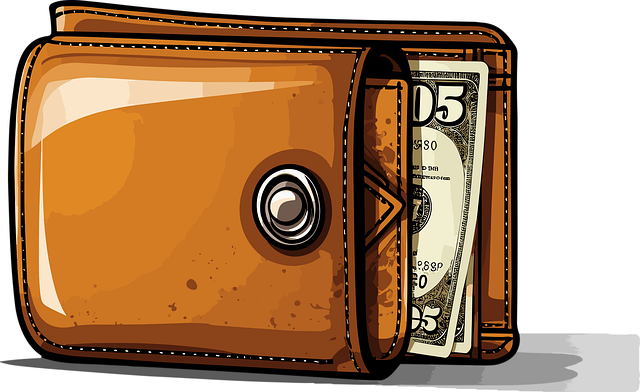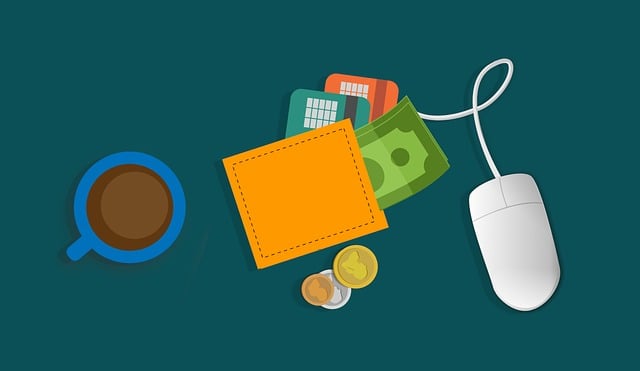Mastering Cryptocurrency Wallets: A Comprehensive Journey
Are you looking to dive deep into the world of cryptocurrency wallets? With the rise of digital currencies, understanding how to secure your assets has never been more crucial. My personal journey in navigating this complex landscape has been filled with ups and downs, but through persistence, I've managed to find the right tools and strategies that work for me. In this article, I’ll share my experiences, insights, and the ultimate guide to mastering cryptocurrency wallets, ensuring you have a solid foundation as you embark on your own crypto journey.
When I first started exploring cryptocurrencies, I was overwhelmed by the sheer amount of information available. I remember the first time I tried to set up a wallet; it felt like deciphering a foreign language. I made mistakes along the way, from choosing the wrong type of wallet to not securing my private keys properly. Each error taught me valuable lessons that I want to pass on to you, so you can avoid the pitfalls I encountered.

Understanding the Basics of Cryptocurrency Wallets
Cryptocurrency wallets are essential tools for anyone looking to buy, hold, or trade digital currencies. They serve as a bridge between users and various blockchain networks, enabling the storage and management of digital assets. Wallets do not store the cryptocurrencies themselves; rather, they store the public and private keys that grant access to your assets on the blockchain. Understanding these keys and how they work is crucial for securing your investments.
Each wallet type has its own mechanism for generating and managing these keys, which are fundamental to the operation of cryptocurrencies. The public key is akin to your bank account number, allowing others to send you cryptocurrency, while the private key functions like a PIN or password, granting you access to your funds. This dual-key structure ensures that your assets can be both accessible and secure, but it also places significant responsibility on you as the user to safeguard your private key.
Types of Cryptocurrency Wallets
There are primarily three types of wallets you can use, each tailored for different user needs:
- Hardware Wallets: These are physical devices that store your cryptocurrency offline, making them less susceptible to hacking attempts. They are often considered the safest option for long-term holding and are ideal for those who want to store large amounts of cryptocurrency securely. Popular hardware wallets include Ledger and Trezor, which offer robust security features and user-friendly interfaces. The offline nature of hardware wallets protects them from online threats, making them suitable for serious investors.
- Software Wallets: These can be desktop, mobile, or web-based applications. They are more convenient for everyday transactions but may be less secure than hardware wallets. Software wallets are typically easier to use, making them a popular choice for beginners and those who actively trade. However, it's vital to choose reputable software with a strong security record, as vulnerabilities can lead to significant losses. Additionally, software wallets often provide features like transaction history, portfolio tracking, and integration with decentralized applications (dApps).
- Paper Wallets: This is a physical printout of your private and public keys. While they are immune to online threats, they can be easily lost, damaged, or destroyed. Paper wallets can be a secure way to store funds long-term, provided you take the necessary precautions to keep them safe. Always generate paper wallets offline to minimize exposure to potential online threats. Consider using a secure method for printing them, such as a dedicated computer that has never been connected to the internet.
My Trials and Errors with Wallets
In my early days, I opted for a software wallet thinking it would be easier to manage my cryptocurrencies. Unfortunately, I lost access to my wallet due to a malware attack, which led me to rethink my strategy. It was a painful experience that highlighted the importance of robust security measures. After extensive research and testing, I transitioned to a hardware wallet, which has provided me with peace of mind. My favorite is the Ledger Nano X, known for its robust security features, user-friendly interface, and support for a wide variety of cryptocurrencies.

How to Choose the Right Wallet
Choosing the right wallet depends on your needs and how you plan to use your cryptocurrencies. Here are some factors to consider:
- Security: Look for wallets with strong security features such as two-factor authentication, encryption, and backup options. Ensure that the wallet has a good reputation within the crypto community. Research user reviews and security incidents associated with the wallet before making a decision.
- Control: If you want complete control over your funds, opt for wallets where you hold the private keys. This is crucial for ensuring that you are the only one who can access your assets. Centralized exchanges hold your keys, which poses a risk of loss if the exchange is compromised.
- Usability: If you're new to crypto, a user-friendly interface can make a significant difference. Look for wallets that offer comprehensive tutorials and support to help you navigate the platform. A steep learning curve can lead to mistakes that may cost you money.
- Supported Cryptocurrencies: Ensure that the wallet supports the specific cryptocurrencies you wish to hold. Some wallets may only support a limited number of digital assets, which could restrict your trading options and hinder your investment strategy.
- Transaction Fees: Consider the fees associated with using the wallet. Some wallets charge fees for sending or exchanging cryptocurrencies, which can impact your overall returns. Compare fee structures to find a wallet that aligns with your trading habits.
Top Wallets to Consider
Here are some of the top wallets I’ve personally tried and can recommend:
- Exodus: A great software wallet with a beautiful interface and built-in exchange features. It supports a wide range of cryptocurrencies and allows for easy swaps between them. Exodus also provides a seamless user experience across desktop and mobile platforms, making it suitable for both novice and experienced users.
- Coinbase Wallet: Ideal for beginners, this wallet integrates seamlessly with the Coinbase exchange, making it easy to buy, sell, and manage your digital assets. Coinbase Wallet allows you to store your private keys securely on your device and offers a user-friendly mobile app for on-the-go access.
- Ledger Nano S: A highly regarded hardware wallet that offers excellent security and is perfect for those looking to store cryptocurrencies offline. Its compact design and affordable price make it a popular choice for new investors. The Ledger Live app enhances usability by allowing users to manage their assets efficiently.
- Trezor Model T: Another excellent hardware wallet, it features a touch screen and supports a wide variety of cryptocurrencies, making it user-friendly and versatile. Trezor also provides advanced security options, including passphrase entry, allowing users to add an extra layer of protection to their assets.
Using Exchanges to Buy and Store Cryptocurrency
Exchanges like Binance, MEXC, and Bybit are popular platforms for buying cryptocurrencies. Each has its unique features, and using them wisely can greatly enhance your trading experience. I often use Binance for its low fees, vast selection of cryptocurrencies, and user-friendly interface. It's essential to conduct thorough research on any exchange you plan to use to ensure it meets your needs and security standards. Remember, not all exchanges are created equal; evaluate factors such as liquidity, withdrawal limits, and customer support.

Securing Your Wallet
After I had my first wallet compromised, I made it a priority to educate myself on securing my assets. Here are a few tips to enhance the security of your cryptocurrency wallet:
- Backup Your Wallet: Always keep a backup of your wallet’s recovery phrase in a secure location, such as a safe or encrypted cloud storage. This ensures that you can recover your funds if your wallet is lost or damaged.
- Use Strong Passwords: A complex password is essential. Avoid using easily guessable information such as birthdays or names. Consider using a password manager to generate and store strong passwords securely.
- Enable Two-Factor Authentication: This adds an extra layer of security to your account. Always enable 2FA on your wallets and exchanges to help protect against unauthorized access.
- Stay Informed: Keep yourself updated on the latest security practices and potential threats within the cryptocurrency space. Knowledge is your best defense.
- Be Wary of Phishing Scams: Always verify the authenticity of websites and communications before entering your private keys or personal information. Scammers often use phishing techniques to trick users into revealing sensitive data. Use browser extensions that help identify phishing sites and double-check URLs before entering any sensitive information.
Final Thoughts on Cryptocurrency Wallets
Mastering cryptocurrency wallets is a journey that requires time and effort. I've learned through my own experiences that the right wallet for you will depend on your personal needs and preferences. Whether you choose a hardware wallet for security or a software wallet for convenience, make sure to prioritize security and understand the risks involved. Your assets' safety hinges on the choices you make today.
For further reading on wallets, check out this comprehensive guide that dives deeper into types of wallets, their advantages, and how to use them effectively. Additionally, if you're interested in automating your trading, this article on trading bots offers invaluable insights into how technology can enhance your trading strategy.
Remember, the world of cryptocurrencies is ever-evolving. Stay informed, continue learning, and you’ll find success in your crypto journey. The knowledge you gain today will empower you to make smarter decisions tomorrow. As you navigate this exciting landscape, don't hesitate to seek out communities, forums, and educational resources that can further enhance your understanding and experience with cryptocurrency wallets.
Common Misconceptions About Cryptocurrency Wallets
As I delved deeper into the world of cryptocurrency wallets, I encountered several misconceptions that are prevalent among new users. Here are a few clarifications:
- Misconception 1: Wallets Store Cryptocurrency: One common myth is that wallets actually store cryptocurrency. In reality, cryptocurrencies exist on the blockchain, and wallets simply store the keys that allow you to access your assets on that blockchain.
- Misconception 2: All Wallets Are Equally Secure: Not all wallets offer the same level of security. Hardware wallets are generally considered the safest option, while software wallets can vary in security based on their development and maintenance practices. It’s crucial to do your research.
- Misconception 3: I Don't Need a Wallet If I Use an Exchange: While exchanges provide wallet services, they also hold your private keys, making you reliant on their security measures. It's advisable to have your own wallet for better control over your assets.
- Misconception 4: I Can Recover My Private Key: If you lose your private key, there's no way to recover your cryptocurrency. This underlines the importance of keeping backups and securing your keys effectively.

Future Trends in Cryptocurrency Wallet Technology
The world of cryptocurrency wallets is continuously evolving, driven by advancements in technology and user needs. Here are some trends to watch:
- Multi-signature Wallets: These wallets require multiple keys to authorize a transaction, adding an extra layer of security. They are becoming increasingly popular among businesses and organizations to prevent unauthorized access.
- Integration with Decentralized Finance (DeFi): As DeFi platforms gain traction, wallets that seamlessly integrate with these services will become more prominent, allowing users to lend, borrow, and earn interest on their assets directly from their wallets.
- Enhanced User Experience: Wallets are likely to become more user-friendly with improved interfaces, making it easier for newcomers to navigate and manage their digital assets without sacrificing security.
- Increased Focus on Privacy: With growing concerns over data privacy, we can expect more wallets to implement privacy-focused features, enabling users to maintain anonymity while conducting transactions.
- Mobile Wallet Advancements: As mobile usage continues to rise, wallets optimized for mobile platforms will likely see significant enhancements in functionality and security, catering to the needs of users who prefer to manage their assets on-the-go.